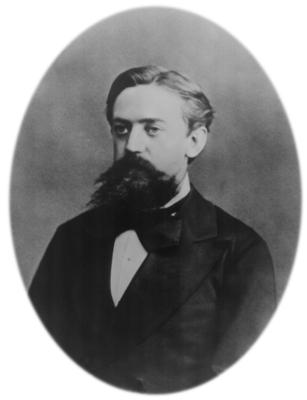Random Choice
Bob Ippolito
October 2013
Why this talk?
- I wrote an ad server in Erlang
- Randomized algorithms are useful for ad serving
- They have other fun applications too
Erlang's random module
- Wichmann-Hill AS183 algorithm from 1982
- … designed for 16 bit computers with limited arithmetic
- It has poor results and you probably shouldn't use it
- Consider the
cryptomodule - … or a third party library (sfmt-erlang)
- Despite this, I will use
randomfor the examples
Fair coin
uniform()returns a float0.0 ≤ X < 1.0- heads when
X < 0.5 - tails otherwise
Fair coin
X = …
○ (heads), X < 0.5
● (tails), X ≥ 0.5
Die roll
uniform(N)returns an integer1 ≤ X ≤ N- Also easy to implement with
uniform()
uniform(N) ->
1 + trunc(N * uniform()).Die roll
X = …
Random selection without replacement
- Choice removed from future selections
- Shuffle a list (very slowly)
- Simulate a deck of cards
- Choose a name from a hat
Random selection without replacement
choose(L) ->
Nth = random:uniform(length(L)) - 1,
{H, [Choice | T]} = lists:split(Nth, L),
{Choice, H ++ T}.Random selection without replacement
Weighted selection without replacement
- Weights are not always uniform
- Unfair dice, ad selection, sporting events…
Weighted selection without replacement
%% {sum(Weight), [{Key, Weight}, …]}
wselect(N, {Sum, Pairs}) when N =< Sum ->
wselect(N, {Sum, Pairs}, []).
wselect(N, L, {S, [H={K, W} | T]}, Acc) ->
case N - W of
N1 when N1 > 0 ->
wselect(N1, T, [H | Acc]);
_ ->
{K, {S - W, lists:reverse(Acc, T)}}
end.Random selection with replacement
- Does not change list
- Similar to rolling a die
choose(L) ->
Nth = random:uniform(length(L)) - 1,
lists:nth(Nth, L).Random selection with replacement
Weighted selection, naive
- With replacement, weight can be implemented simply
- Just add the item to the list multiple times
[a, a, a, b, c, d]- 50%
a, ~16.6%b, …
Weighted selection with replacement
Optimizing for memory
- Naive solution uses a lot of memory
- Can do better by counting each unique choice
- Tradeoff - it's harder to seek to Nth choice
{6, [ {a, 3}
, {b, 1}
, {c, 1}
, {d, 1} ]}Alias method
- Create N coins, one for each unique choice
- Choose coin (by die roll), then flip weighted coin
- Uses
O(n)memory, hasO(1)selection! - Can initialize in
O(n)time (Vose) - Algorithm doesn't fit on slide :(
Alias method
Die:
Coin:
| head | tail |
|---|---|
| a 1 | undefined |
| b ⅔ | a ⅓ |
| c ⅔ | a ⅓ |
| d ⅔ | a ⅓ |
Handling updates
- For our IRC bot, the choices update for every word of text
- Alias method is
O(n)to update - High
O(n)garbage, no sharing at all - Hard problem to solve with Erlang's purely functional data structures
Using a tree
- Can build a tree for efficient updates
- Fast
O(log n)updates - Low
O(log n)garbage, good sharing - Slow
O(n)seeks, since sort is by key
Sorted list
- Seems to be a good compromise between speed and memory (in Erlang)
- Highest weights first
- Highest weights are most likely to be updated
- Worst case
O(n)for every operation - But very good common case is near head of the list
Sorted list
| Key | Weight |
|---|---|
| 0 | 0 |
Markov chain
- Finite state space
- Present, future, and past states are independent
- Graph where edges represent probability for state change
Andrey Andreyevich Markov

Two-state Markov Chain
Markov Chains for Text
- State transitions are from one word to the next
- Use special tokens for start and stop
- One weighted random selection data structure per word (and start)
Markov Text Generator
Questions?
Slides |
|
Source |
|
bob@redivi.com |
|
@etrepum |